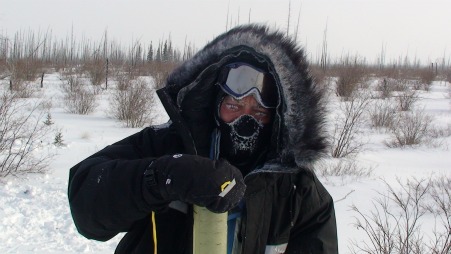How do you describe your job when you meet people at a party?
The full mouthful: consultancy in health, safety & environment
What is ‘cutting-edge’ about your work?
Nothing – apart from the occasional possibility of using techniques from one industry, say oil & chemicals, to solve problems in another, eg the health service
What are the biggest implications your work will/could have in the future?
Whoops – I seem to have forgotten about a legacy…
Describe some of the highlights of your average day.
No such thing, fortunately. Some days are devoted to quiet study, eg literature searches at RSC or in the British Library, or re-learning theory for a difficult case; some are full of frantic interruptions, like any office; there are days spent in court or public inquiry giving expert evidence; there are site visits in UK and abroad
Describe briefly how your career has progressed to date.
This will be brief. I left academe gradually in 1982-83, at the end of my second post-doc stint, set up as a free-lance consultant & here I still am. Never had a proper job
How is your job cross-disciplinary?
Very much so. I need to be a jack of the following trades: chemistry (inorganic, organic and physical), physics (heat transfer, atmospheric dispersion and deposition), combustion science (physics and chemistry), maths, incl statistics, with a soupcon of toxicology and ecotoxicology, prose composition (communicating with courts and lay clients) and diplomacy (ditto)
How well is your job compensated? What is the starting salary for your field, and how much can this be expected to rise?
What is the starting salary for someone in your field, and how much can this be expected to rise? The hourly rate is good, but the annual income doesn’t measure up. Sometimes there’s not enough work, other times the work is overwhelming, leaving no time for marketing and thus preparing the next famine, and sometimes one needs to work unbudgeted & thus unpaid hours in order to complete a job professionally (in addition to pro bono work). Starting salary may be in £K mid-twenties & can rise to £80-100K or even higher – but I’m not well informed about salaries, never having had one as a consultant
How do you see your field developing over the next 5-10 years?
Much of the science has matured over the last 20-30 years. However, there are new and strange hazards which will challenge the profession, eg nanoparticles, carbon storage etc – and somehow we will need to develop systems for assessing and ranking security risks
What’s the most unexpected thing about your job?
How young and brash it makes you feel – it’s a shock, sometimes, to realise I’m the oldest person in the room
What’s the biggest achievement of your career so far?
Playing a small but crucial part in a court case which saved a farmer’s livelihood and led to the closing down of a nasty pollution source.
